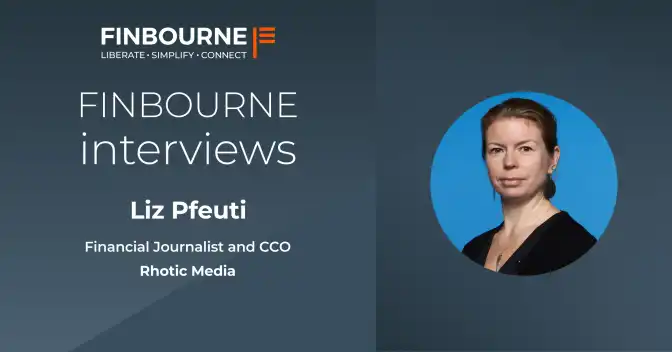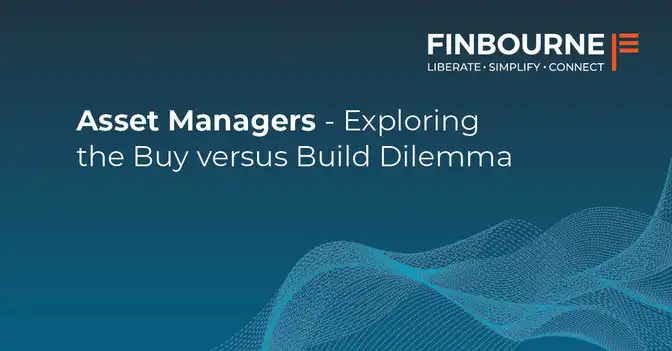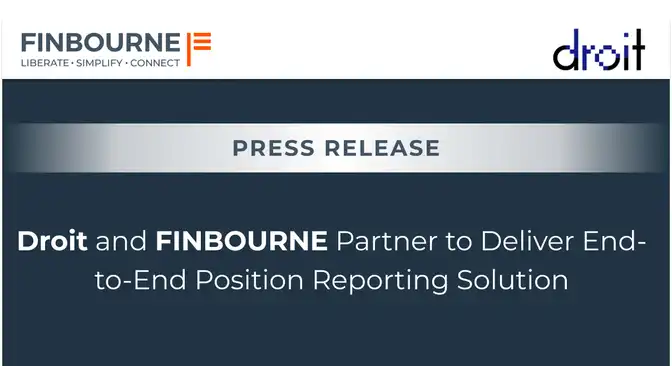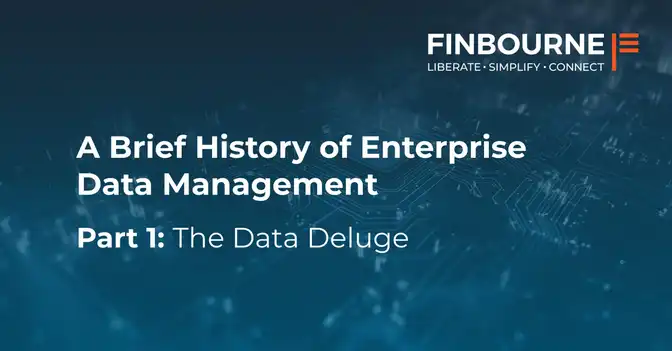Industry must work harder on DE&I barriers
In conversation with FINBOURNE Technology , Liz Pfeuti, Chief Client Officer of Rhotic Media, talks about how technology has revolutionised the investment industry and why there are still so many barriers facing women.
From the integration of technology into front-office investment decision-making processes to the realisation that ESG deserves to be taken seriously, the investment sector has undergone a huge amount of change during Liz Pfeuti’s financial journalism career.
But she believes there is still a way to go, including breaking down barriers facing women when it comes to leadership roles, and attracting more people to the industry from different backgrounds.
As a financial services journalist for over 15 years, please tell us about the changes you have witnessed in the industry and what has stood out for you.
Before the 2007 credit crisis, technology was seen by many in our sector as an optional spend and a ‘nice to have’. Few really grasped how vital technology was going to be to investment and capital markets.
Over the past 15 years, the industry has finally understood how technology, such as to handle data management and investment processes, is critical to running a successful portfolio.
There used to be a mentality that if you could pick a decent stock and had a good head for figures and analysis, you could run an investment management company and make returns. Now, people realise that the more data you have, the better decisions you can make – but only if it’s analysed in a way that makes sense and it is integrated into investment decision-making processes.
Stock or bond picking are only a part of the investment management process. The middle and back offices are supremely important and can be the difference between profit and loss for any investment management company.
In this vein, I’m happy that the ludicrous culture of promoting “star” fund managers is pretty much over – apart from some notable examples in the recent past.
Equally – and it seems obvious now – understanding that factors such as liquidity and client reporting are not purely an issue for the back and middle office has been an important step for our sector. There is an entire investment process that people now acknowledge, which has fundamentally changed how managers invest and what investors expect.
We’ve also seen a massive development in environmental, social and governance (ESG) investment. If you tried to talk about ESG in 2006 – and I did – most investment managers weren’t interested. I’d say 95% of them didn’t see the value in it. Even for those who did see its value, it was too difficult to action.
Fast forward 15 years, and a lot of the financial industry is scrambling. They realise they need to integrate ESG within their entire process – and it would have been much easier and cheaper to have started 15 years ago.
They are also now realising it is only possible to properly implement ESG if you have a middle and back office that is entirely connected to the front, and that is only possible through technology.
You have interviewed hundreds of CIOs and executives throughout your career. How do you view the representation of women in leadership roles and what barriers, if any, need to be addressed?
Over the past 15 years, I have heard huge amounts of rhetoric around how women and diverse/minority candidates need to move into leadership roles, for both business and equality reasons.
But looking at the landscape of chief executives and chief investment officers within the financial services industry, there is very little difference between now and 2006, despite a significant turnover at the top.
The same men are doing the same jobs, or have been replaced by men who look and sound like them.
If you consider all the column inches and events, awards etc., it is disheartening to see the needle move so little on gender diversity in the industry, and the context against which we consider female leaders has barely altered.
There is still a perception that it is risky to give the top job to a woman, whether this is explicit in decision-making or not. There is also a belief that women can’t handle pressure, which is laughable, given everything women have to juggle daily.
We need to tackle why women are overwhelmingly assumed to be the primary caregivers to young and old family members – something that only increased during the pandemic. That is a structural, societal issue that gives companies a get-out clause for not giving us senior roles, while perpetuating the myth that women don’t want a career.
Additionally, we – and I’m including the media here – are guilty of putting forward a vision of a complete package of what we, as women, should be trying to attain to have any chance of getting a top job. These include: an already high-flying career, at least a couple of children and a sense of style, all backed by the best qualifications money can buy.
In my experience, and that of many of my friends and networks, this is an “all” few of us can have.
I note that over the last 15 years, support networks for women have faded somewhat. I don’t know whether that’s due to ‘network fatigue’, or the realisation that even if you want something badly enough, you’re working within a system that doesn’t allow it to happen and, at some point, you need to stop banging your head against a brick wall.
Women can’t break down these barriers on our own. Despite huge work and good intentions, we need fundamental change not just in The City but also in society and culture.
Frustratingly, things are no better for other groups who are minorities in The City too.
Is DE&I something that the financial services industry needs to pay attention to? Or is it, as some claim, simply a product of woke capitalism?
I was always told by my elders that once you start resorting to name calling, you’ve lost the argument, so I approach this term with a wry smile.
Yet if DE&I is “woke capitalism”, then I’m all for it. It makes business sense, which is why we’re all here, and there are multiple real-life examples of it working.
A more diverse group of thinkers would produce a wider range of ideas, one of which may help us get out of the many messes we are in across the wider economy. A broader group of people will give us more opportunity to think differently.
Some of the worst decision-makers are groups of people from the same background and experience, who naturally think in the same way. The worst thing we can do is keep asking the same people for answers, because it will keep us in the same situation.
At Rhotic Media, our participation in a range of schemes – degree apprenticeships, Kickstarter, 10,000 Black Interns – enables us to fish in as deep and broad a pool as possible for talent. At just 20 staff, it takes effort, money and commitment, but we believe it pays a range of dividends for the company, our employees and our industry as a whole.
It blows my mind that DE&I isn’t seen as a massive opportunity for more company executives. However, I do see how it can be scary for some who have assumed a position of authority or influence and fear being replaced, rather than complimented and positively challenged.
Sadly, a lot of the current politics and push against DE&I – or, to give it a different name, a correct representation of society – is capitalising on this fear, and it is succeeding in some quarters.
As investment management assesses its role in the climate transition and what some are calling the ‘largest reallocation of capital in human history’, what lessons should it learn from the past, to support the future of ESG?
One of the many issues that led to the 2008 financial crisis was people making money quickly and on the cheap. From worthless mortgage-backed securities through to the disastrous acquisition of ABN AMRO, due diligence was broadly absent.
We should have learned that we need to understand what we’re getting into and why, for something to work properly – and I’m not sure we all did.
Almost incredibly, we have seen this same lack of due diligence again with the collapse of the crypto platform FTX. As the legal documents emerge detailing its internal workings, it’s clear any institutional investor should have been seeing red flags waving from a mile away.
I’m concerned that if the industry – and I’m generalising here – takes the same high-touch approach to more important issues, we could be in a whole load of trouble.
My main concern is around sustainability.
As a broad theme, while a carefully studied approach for some, sustainability has been a marketing exercise (or worse) for other investment managers, who may have seen it as a fad initially.
If the climate transition requires the largest reallocation of capital in human history, proper due diligence is essential, not just on projects that will be financed or companies invested in, but how the whole push aligns with regulatory and scientific evidence, which may have to quickly and abruptly change.
While a lot of people lost their jobs in financial services during the 2008-2009 financial crisis, the impact was felt much more broadly, causing ripples across the domestic and global economy.
With climate change, the stakes are much higher.
We should have been looking at this decades ago, to vastly reduce the possibility of errors and capital being allocated in the wrong way to the wrong things, but we didn’t and now there is a rush to get up to speed.
What everyone needs to realise, however, is that the potential for messing this up is not just loss of mandates, performance fee reductions or job losses. Failure or even just a couple of missteps may result in a cataclysmic impact on millions of people, animals and ecosystems and there’s no central bank there to rescue us then.




